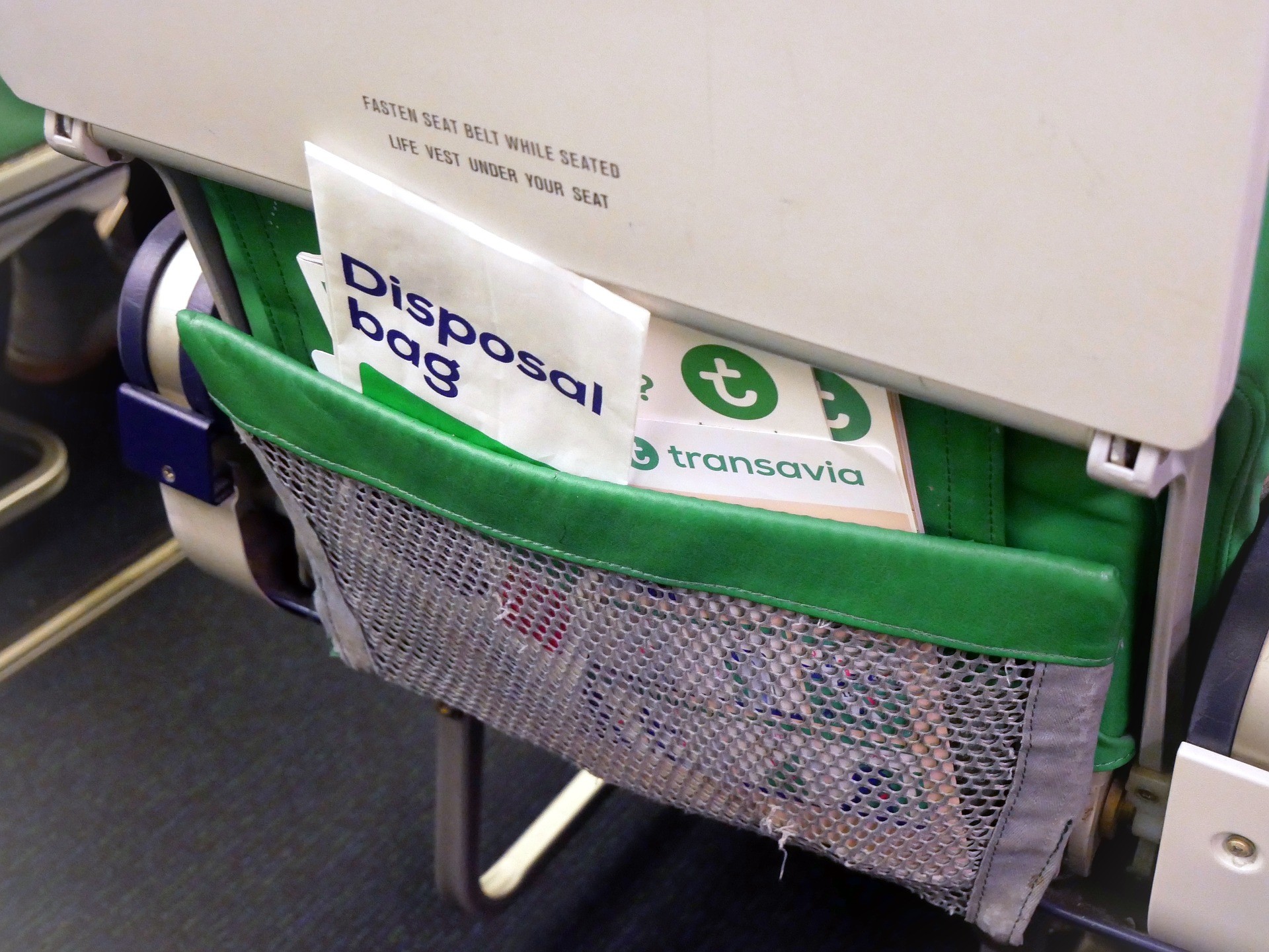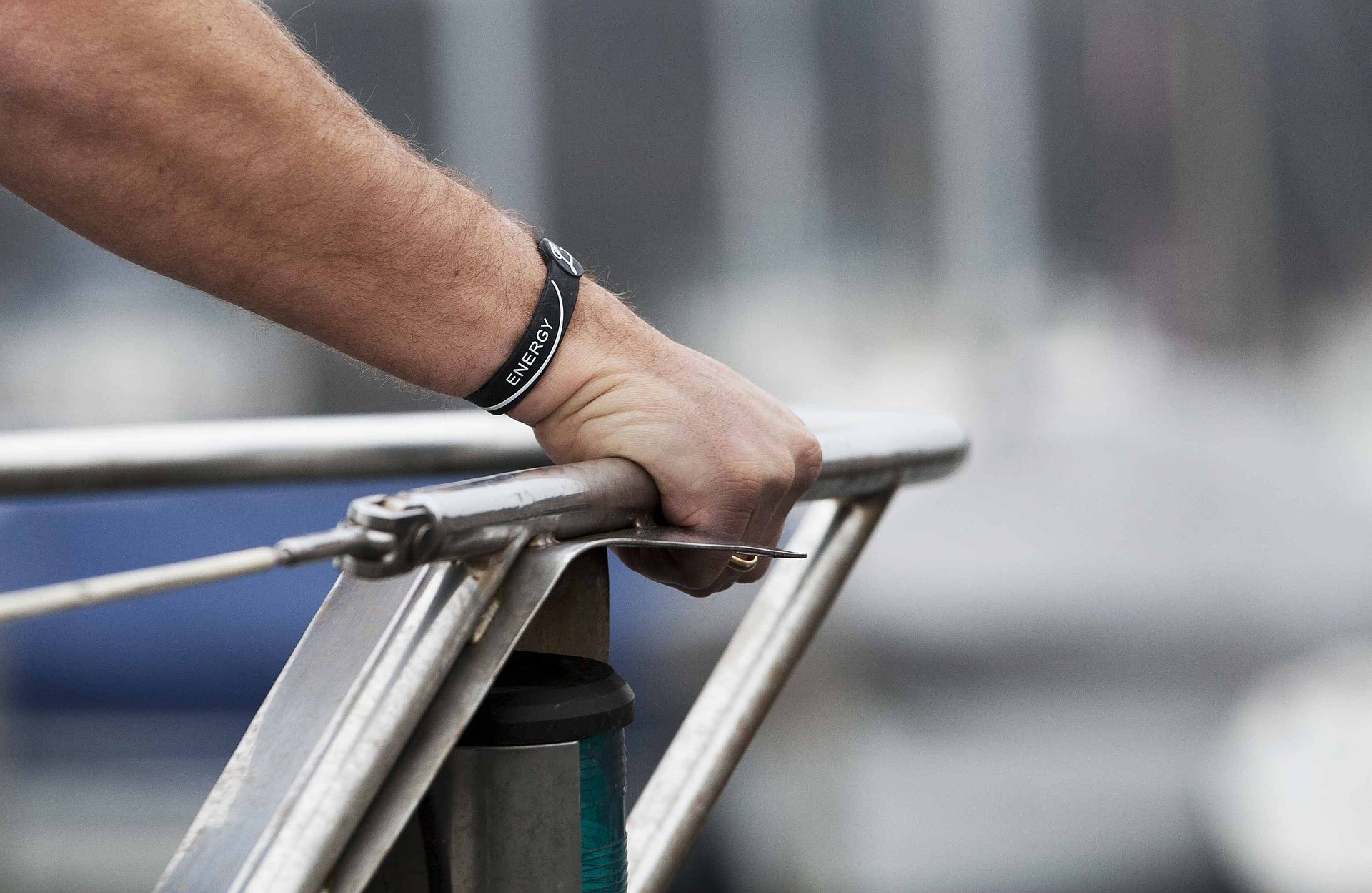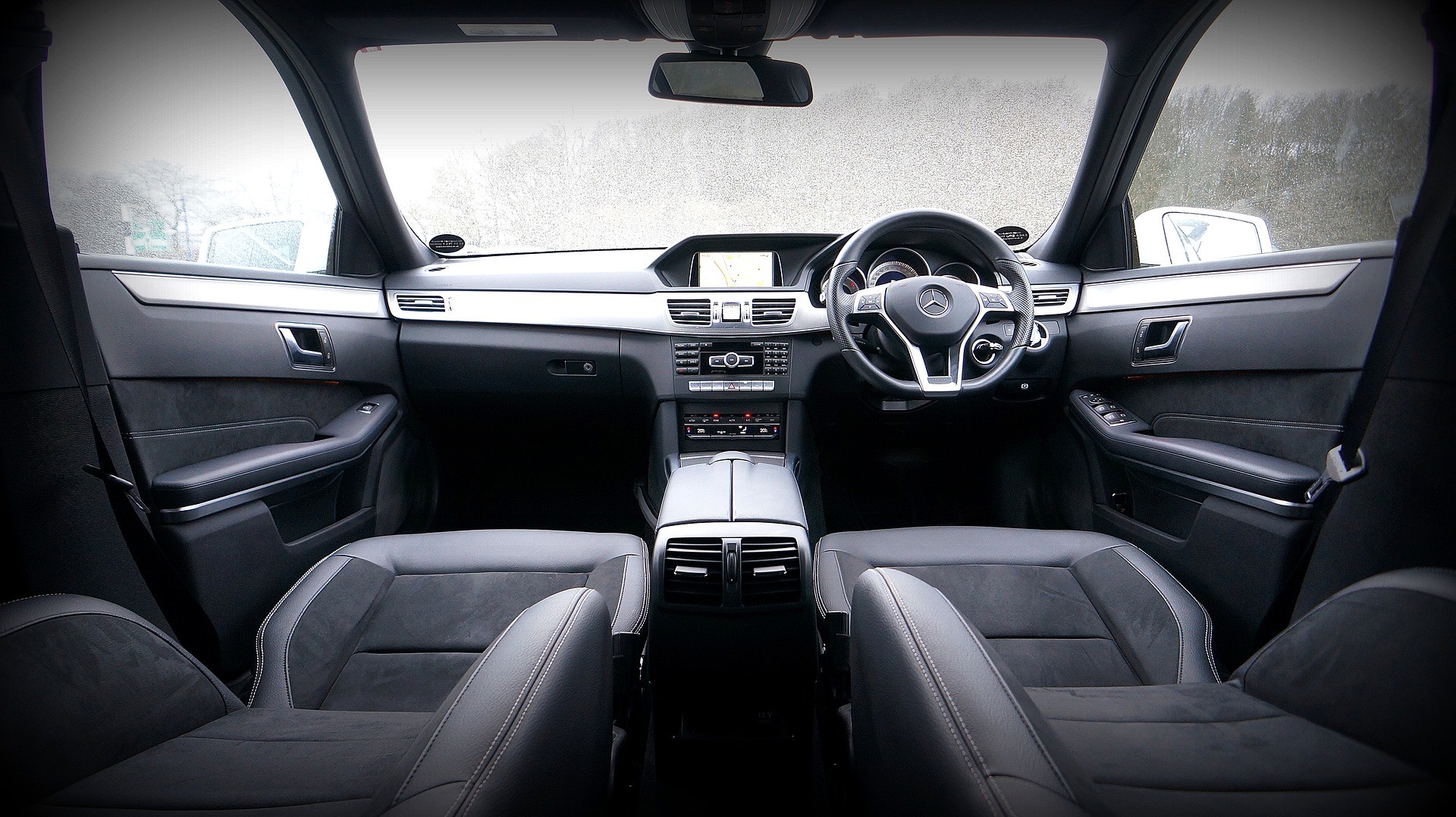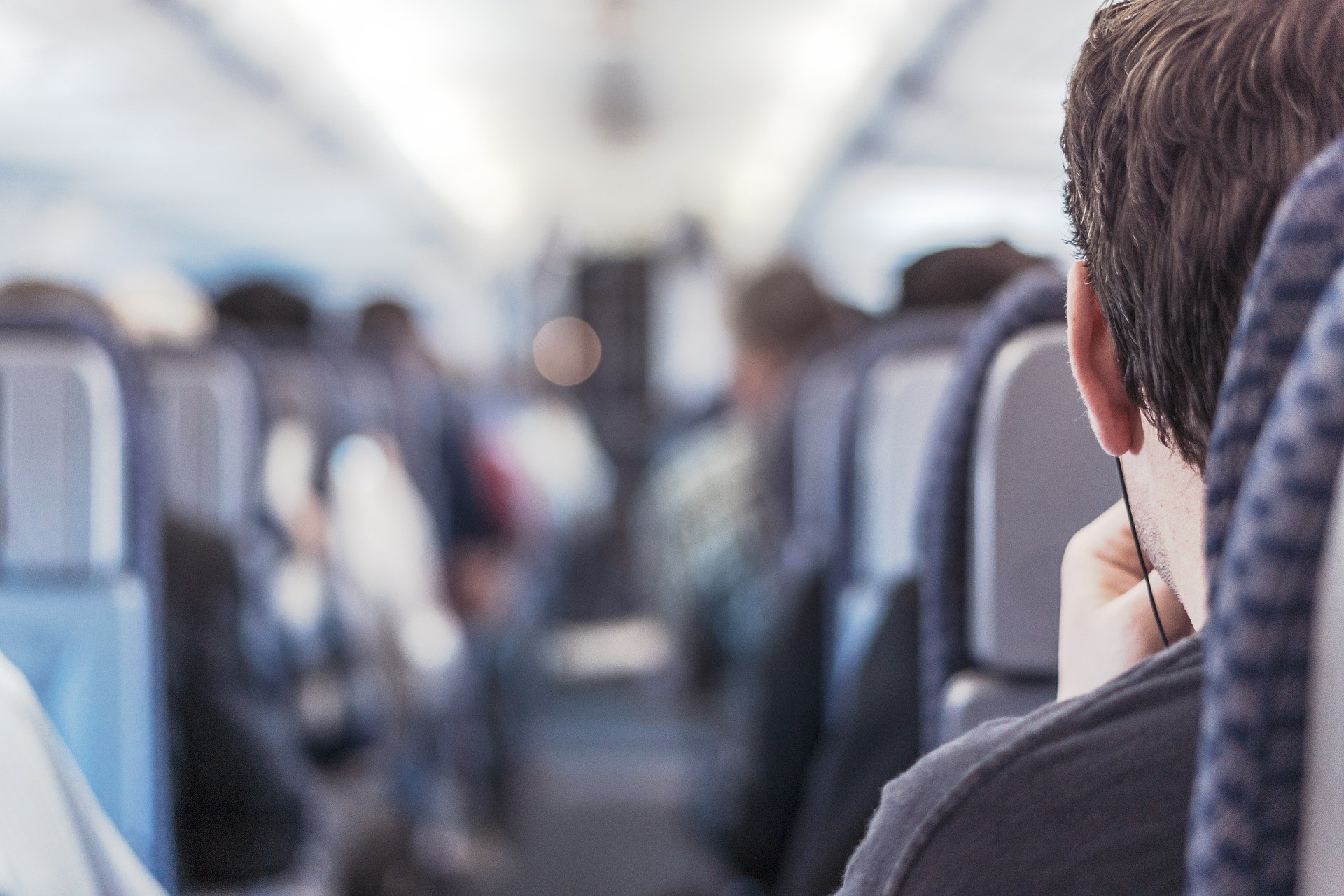15 ways to manage travel sickness
Travelling is one of life’s greatest gifts, but – as with all things – it comes with its drawbacks. A few weeks ago, I talked about the financial burden of seeing the world (and suggested ways to deal with this), but today I’m going to be focusing on a rather different – and slightly less universal – problem: travel sickness.
I’ve had my fair share of unpleasant experiences over the years, but they definitely occur a lot less frequently now than they used to. This is largely thanks to the coping mechanisms I’ve developed to deal with nausea when it arises. Fellow motion sickness sufferers: keep reading, and maybe you'll discover a life-changing trick!

Before your journey
Managing travel sickness effectively involves taking precautions even before you set off on your journey. Below are seven of the best things you can do to minimise the risk of queasiness.
Stay nourished and hydrated
In my experience, one of the main causes of travel sickness – and, in fact, of any sort of nausea – is being hungry or dehydrated. It is, therefore, a good idea to eat and drink before your journey – and, if possible, during it. Great foods to settle your stomach include ginger, crackers, mints, and boiled sweets. As for beverages, water and carbonated drinks are widely considered to be the best options.
Even if you really have no appetite, try to get something inside you: even the smallest snacks can make an enormous difference!

Get a good night’s sleep
Nausea is bad enough by itself, but when you combine it with fatigue, it’s an absolute nightmare! Try to avoid this horrendous duo by getting a lot of shuteye (eight hours, if possible) the night before your journey. If anxiety is keeping you up, consider doing a guided meditation session, or taking sleeping pills.
Take medication
Speaking of medication, it’s also a great idea to take travel sickness tablets just before you set off on your journey. I’m not totally sure how these work – in fact, I sometimes wonder if they’re just placebos – but I’ve had only positive experiences while on them. Just make sure you check the side effects of anything you take, and, if drowsiness is a possible symptom, get someone else to do the driving.
Wear a travel wristband
If you don’t fancy popping pills, why not try an acupressure band? These bracelets can be used over and over, and will, in theory, stimulate all the right points on your wrist, thereby reducing any nausea or dizziness. Even better: there are no side effects to worry about while using these!
Warning: it has been proven that these devices do not work on all people, so it’s worth bringing some medication with you, just in case you’re one of the unlucky few.

Lay newspaper out on your seat
I haven’t tried out this technique for myself just yet, but one of my good friends swears by it! Sitting on newspaper, she says, makes her feel infinitely better on car journeys, even though there is no logical explanation behind it. Just make sure, if you experiment with this one, that you’re not tempted to read any of the pages!
Don't expect the worst
Sometimes combatting nausea is a question of tricking your mind. If you expect that you’re going to feel awful on your journey, you may well work yourself into a state of sickness before you’ve even left the house. It is, then, a much better idea to assume that everything is going to be fine. Take deep breaths, and remain calm until your body actually gives you reason not to (which, if you take all these tips on board, it probably won’t!).
Warn your driver and/or fellow passengers
Finally, be sure to let your travel companions know about your proneness to motion sickness. With any luck, whoever is driving will take extra care to make the ride a smooth one, and your fellow passengers will give you priority for the front seat. In addition, if everyone is aware that you may need to stop along the way, you won’t have to feel awkward about asking to do so.

During your journey
Now that you’ve taken the appropriate precautions, it’s time to face the journey, itself. Follow the steps below, and you’ll have a smooth ride all the way!
Do the driving, yourself
I don’t have a licence, myself, so can’t confirm this one, but I’ve heard from a number of people that being in the driver’s seat helps infinitely with travel sickness. You’ll be in full control of the car’s movements, and will likely be too focussed on driving to even think about your stomach!
Sit in the front seat
If you can’t drive, it’s still worth trying to sit as close to the front of the vehicle as you can. Doing so will not only help you keep track of your direction of travel – thereby making you feel less disorientated – but will also ensure that you’re close to the driver, and can easily ask them to slow down or stop completely.

Keep your eyes on the road
One of the best ways to relieve nausea while in transit is to keep your eyes on the road. If you do this, you’ll know when to expect curves or sudden dips in the road, and as a result, they won’t be such a shock to your body when they come. Travelling by boat? Find your bearings by concentrating on still objects in the distance (lighthouses, mountains, etc.), and don’t, whatever you do, look at the crashing waves below you!
Top tip: be sure to bring a pair of sunglasses with you. Following your direction of travel can be pretty tricky if you've got the sun shining in your eyes!
Sit facing in the direction of travel
If you want to follow the tip above, you’ll need to make sure you’re sitting in a front-facing seat. You can often request these when booking tickets online, but if that’s not an option, most members of the public will gladly swap places with you once you’re onboard.
If you do end up in a backwards-facing seat, try to turn your body sideways so that the disorientating effect isn’t so great. Alternatively, close your eyes: that way, you won't be able to see that you’re travelling in an unnatural direction.

Avoid reading or using your phone
Keeping your eyes on the road also means keeping them away from books or electronic devices! Reading is a well-known cause of travel sickness, so unless you absolutely have to, try to avoid engaging in this activity. Got a novel you just can't wait to finish? Invest in the audiobook version. Need to look something up on your phone? Make use of voice command features.
Keep the windows down
Fresh air is another great remedy for upset stomachs, so wind down the windows of your vehicle whenever your can. If this is not possible – for instance, if you’re driving on a motorway – try to stop on the side of the road every once in a while for a quick walk. Not only will you get to escape the stuffiness of your car for a bit, but also you’ll get the chance to stretch your legs. If, on the other hand, you’re on a plane (and can't, for obvious reasons, break up your journey), turn on the air vent in the panel above your head.

Take deep breaths
Along with this, be sure to take plenty of deep breaths if you feel nausea creeping up on you. It’s a proven fact that you can’t vomit while inhaling or exhaling, so this will definitely help to keep the contents of your stomach in their rightful place! In addition, if you’re concentrating on your breathing, you’ll have something to keep your mind off your queasiness.
Listen to music
I’m not sure why, but for some reason, listening to good tunes – and sometimes even singing along to them – makes me feel infinitely better while travelling. Prepare a playlist of all your favourite tracks, and lose yourself in the world of music: your journey will pass by in a flash!
Here’s to happy stomachs!
So there we have it: fifteen of my top tips for managing motion sickness! No matter how badly you suffer from this affliction, there are always ways to combat it, and you should never let it put you off travelling for good. With a bit of ginger, a bit of fresh air, and a bit of good music, you'll be well on your way to seeing the world nausea-free. Here, then, is a toast to happy stomachs and problem-free journeys!
Photo gallery
Content available in other languages
Want to have your own Erasmus blog?
If you are experiencing living abroad, you're an avid traveller or want to promote the city where you live... create your own blog and share your adventures!
I want to create my Erasmus blog! →











Comments (0 comments)